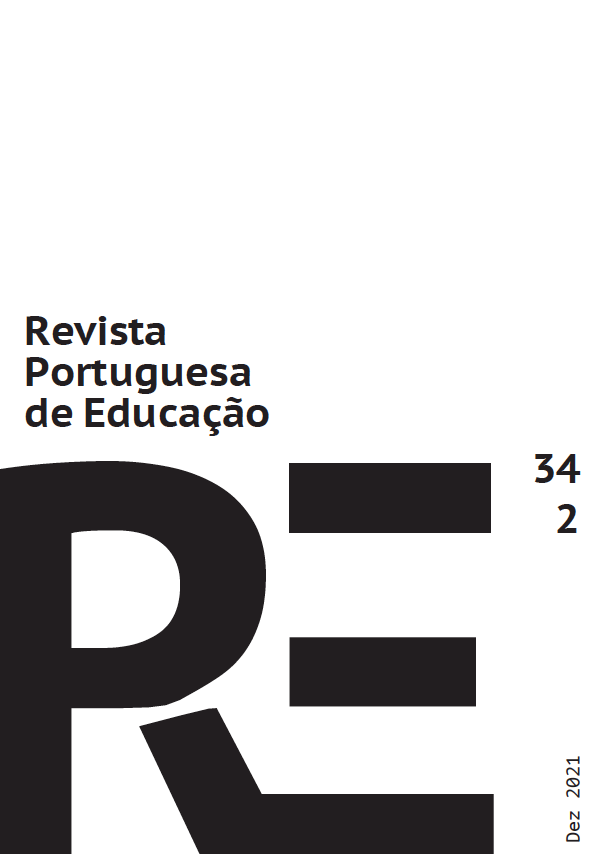Parents in the General Council of schools: Between the rhetoric of strategic action and multiple subordination
DOI:
https://doi.org/10.21814/rpe.18618Keywords:
General Council, School board, Parents, ParticipationAbstract
What do parents think about the role of the General Council of schools, what value do they give it as a “strategic management” organ, how do they get involved and consider themselves in the role they play there, these are the key issues to which we’d like to answer. To do so, we sent a survey by questionnaire to parents who had a place in this organ, which was composed by 28 items categorized later into six dimensions: participation, deliberation, focus, dissemination, importance and relationship between parents and the school director. The questionnaire was sent to be answered through a link between December 18 and January 26, 2018 and 213 valid answers were collected. The questionnaire results were processed by using a descriptive statistics method to get the frequency, mean and standard deviation and analysis of relations between variables. As main conclusions, we emphasize those related to a significant dispersal of results which demonstrate an heterogeneous view about the roles of its members and the strategic importance of the General Council, the recognition of the conditioning of the external forces (placed in the Education Ministry) and the internal forces related to the cognitive power of the teachers and the director, a symbolic overvaluation of this organ which will not correspond to its concrete action and a limited view of the educational community where there’s no place either for the local council or the students.
Downloads
References
Alves, J. (1999). A Escola e as Lógicas de Ação – As dinâmicas políticas de uma inovação instituinte. Edições ASA.
Barroso, J. (2004). A autonomia das escolas uma ficção necessária. Revista Portuguesa de Educação, 17(2), 49-83.
Brunsson, N. (2006). A organização da hipocrisia – os grupos em ação: dialogar, decidir e agir. Edições ASA.
Costa, J. (1996). Imagens da Organização Escolar. Edições ASA.
Crozier, M. (1963). Le phenomène bureaucratique. Seuil.
Formosinho, J. (1980). As bases do Poder do Professor. Separata da Revista Portuguesa de Pedagogia, Ano XIV, 301-328.
French, J. R. P. & Raven, B. H. (1959). The bases of social power. In D. Cartwright (Ed.), Studies in social power (pp. 150-167). Institute for Social Research.
Houssaye, J. (2007). Prazer. Currículo sem Fronteiras, 7(2), 71-77.
Lima, L. (1992). A escola como organização e a participação na organização escolar. Universidade do Minho.
Lima, L. (1997). Para uma análise multifocalizada dos modelos organizacionais de escola pública – o normativismo, a infidelidade normativa e o exercício da autonomia – Lição de síntese. Universidade do Minho.
Lima, L. (2006). Prefácio. In N. Brunsson, A organização da hipocrisia. Estratégias para uma educação de afectos (pp.3-7). Edições ASA.
Lima, L., Sá, V. & Silva, G. (2017). O que é a democracia na “gestão democrática das escolas”. In L. Lima & V. Sá (Eds.), O governo das escolas: Democracia, controlo e performatividade (pp. 214-258). Humus.
Lima, L. & Sá, V. (2002). A participação dos pais na governação democrática das escolas. In J. A. Lima (Ed.), Pais e Professores – um desafio à cooperação (pp. 25-96). Edições ASA.
Mintzberg, H. (1986). Le pouvoir dans les organizations. Ed. D’ organisation.
Neto, R. (2018). O Conselho Geral em dois agrupamentos de escolas. Entre uma retórica estratégica e um órgão de legitimação: perceções e prática [Master’s thesis, Universidade Católica Portuguesa, Portugal]. http://hdl.handle.net/10400.14/28016
Nóvoa, A. (2014). Profissão professor. Porto Editora.
Sá, V. (2004). A Participação dos Pais na Escola Pública Portuguesa. Uma abordagem sociológica e organizacional. Centro de Investigação em Educação- Universidade do Minho.
Sá, V. (2005). A Relação Escola-Pais- Da Tese das “Esferas de Influência Separada” à Tese das “Esferas de Influência Sobreposta”. In B. D. Silva & L. S. Almeida (Coords.), Actas do VIII Congresso Galaico-Português de Psicopedagogia (pp. 1-12). CIEd/IEP/UM.
Silva, P. (2002). Escola-família: Tensões e potencialidades de uma relação. In J. Lima (Org), Pais e professores: Um desafio à cooperação (pp. 97-132). Edições Asa.
Vieira, R. (1996). Comentários. Professores e Pais: Diálogo de Surdos e Relações de Poder na Comunicação. Educação, Sociedade & Culturas, 6, 173-178.
Weick, K. (1976). Educational organizations as loosely coupled systems. Administrative Science Quarterly, 21(1), 1-19.
Downloads
Published
How to Cite
Issue
Section
License
Copyright (c) 2021 Portuguese Journal of Education

This work is licensed under a Creative Commons Attribution-ShareAlike 4.0 International License.
1. The authors preserve their authorship and grant the Portuguese Journal of Education the right to the first publication. The work is licensed under Creative Commons Attribution License that allows sharing the work with the acknowledgment of initial authorship and publication in this Journal.
2. The authors have the right to take additional contracts separately, for non-exclusive distribution of the published version of their work (e.g. to deposit in an institutional repository or as a book chapter), acknowledging the initial authorship and publication in this Journal.
3. The authors have the permission and are stimulated to post their work online (e.g. in an institutional repository or on their personal website). They can do this at any phase of the editorial process, as it may generate productive changes, as well as increase impact and article citation (see The Open Citation Project).
The work is licensed under Attribution-ShareAlike 4.0 International (CC BY-SA 4.0)




















